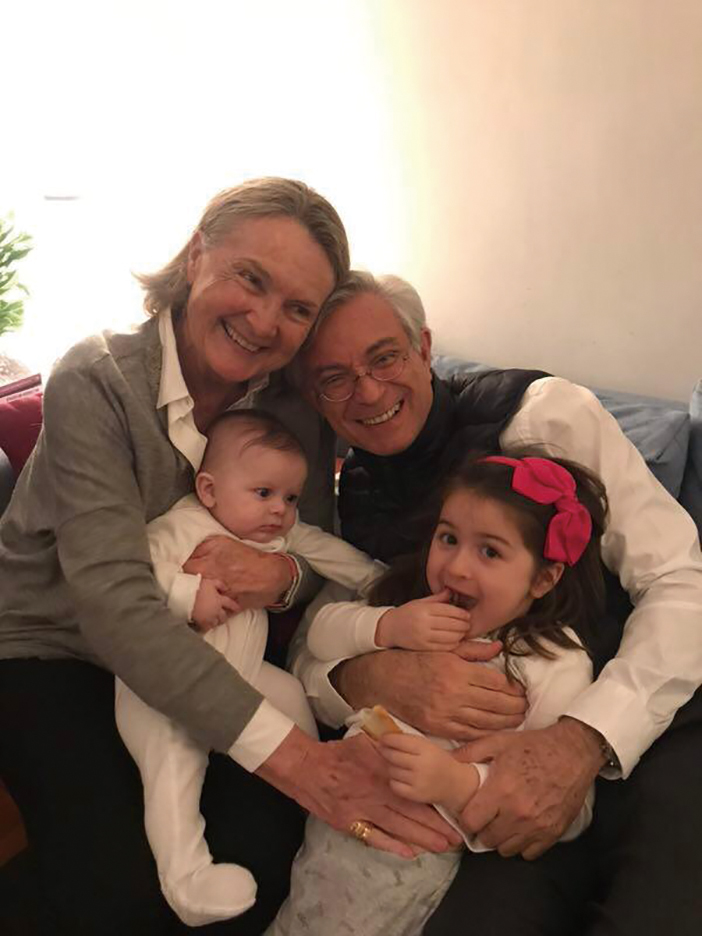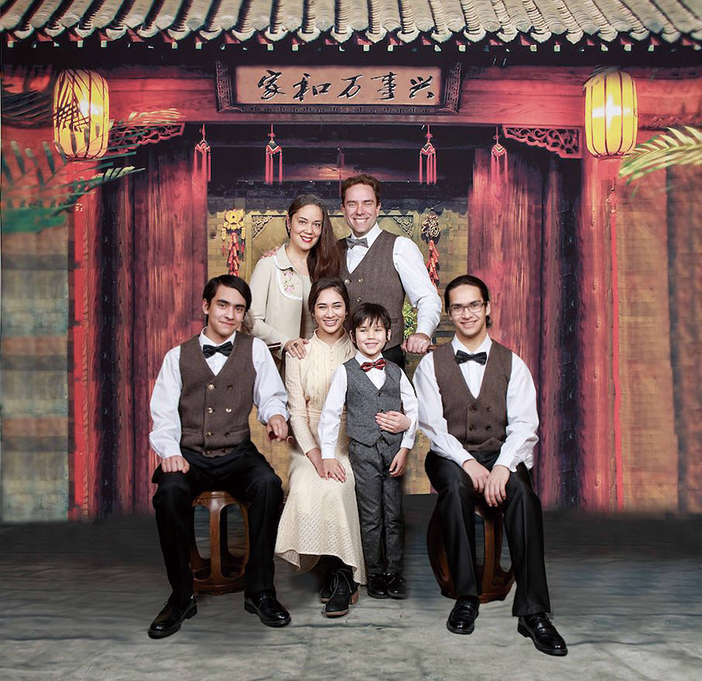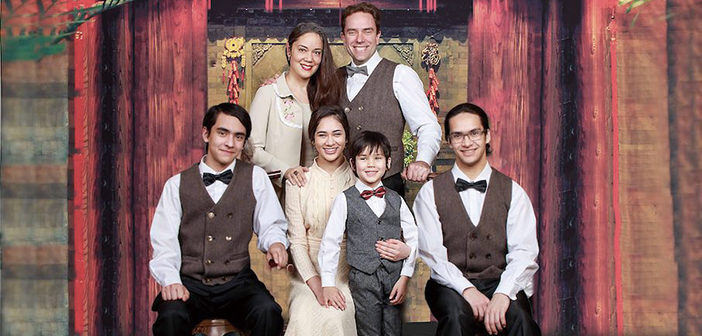As foreigners living in Beijing, we are all too familiar with the feeling of being uprooted from our countries of origin, navigating work and family life away from all that we used to know. We are living amongst cultures and constantly striving to find our place in the world.
As parents of kids growing up and living in a foreign culture, we have yet another big challenge – “How do we cultivate a sense of home for our kids?”
My family lives amongst four different cultures at the moment – French, Indian, Australian and Chinese. My 15-month-old daughter is a “Third Culture Bǎobǎo” born in Beijing. She is an Australian citizen, but has never set foot in her passport country yet. And so, this is one of the hottest topics on my mind these days, which I’m sure many of you ponder over too.
So who is a Third Culture Kid?
According to Tanya Crossman, a TCK expert and author of the book “Misunderstood”, the term “Third Culture Kid” refers to the three different types of cultures that a child is exposed to.
“First cultures are legal cultures – anywhere you have a passport of permanent residency,” Crossman says. “Second cultures are geographic cultures – anywhere you have spent a significant amount of time, or a heritage culture passed down by a parent. It’s quite common for a TCK to have no overlap between their first and second cultures – which brings me to the Third Culture. The Third Culture is not about where you are from, or where you have lived, but the shared experiences of having the first and second cultures that don’t entirely overlap. A TCK is anyone who grew up in this space, whose understanding of the world was shaped by living in between cultures.”
She also says: “Home is a concept that combines many things: nostalgia, childhood experiences, familiarity, comfort, security, family relationships, and more. I don’t think it’s essential to have a single place to call home, or a strictly geographical sense of belonging. But, I do think that on an emotional level we all need some sense of home and belonging, even if the pieces aren’t all found in the one place or community.”
I interviewed two fascinating people with diverse experiences and insights on the subject.
Through the eyes of Karina, an expat mom of three TCKs

Karina Pellegrin, a charming, genuine, and lively woman who raised a beautiful family of three TCKs (now adults) and has spent the last 40 years moving around the world, making various countries their “home” along the way. Her husband’s banking career gave them the opportunity to travel and live in many different countries such as Yemen, Thailand, Singapore, South Africa, Italy, and China. Her kids are now scattered across Milan, Hong Kong, and Beijing, and they always make it a point to come together and spend quality time together at least once a year.
What did you love most about living as an expat and raising TCKs?
I felt that my husband and myself were always made for living this way. I lost my dad at the age of two, and had to leave the city I was born in with my family at such an early age. We moved to Corsica and it was there that I met my Vietnam-born, French husband who was in a boarding school at the time. We always talked about never leaving France but when the opportunity came to explore the world, we took it with open arms.
I loved seeing my children grow up in environments where diversity was the norm. They had friends and classmates from all over the world, speaking different languages, looking and dressing differently. This was exciting for me to observe and experience. I believe this way of life made them “citizens of the world” with openness, adaptability and inclusion as their natural state.
What were the challenges you faced along the way?
It was sometimes hard for my children to fit into new schools and countries after a move, especially in non-international environments. This was always painful for me to watch, and I always told them to “take care of the newcomers” wherever they went as a way to empathize with and cope with these painful experiences.
Another challenge for me was being okay with the fact that even though it is easy for them to fit in and live anywhere in the world, they remain foreigners in their (my) “home country” of France. I think this bothers me more than it does them.
Schooling was another challenging decision for us. We wanted them to speak both English and French fluently. We managed to enroll them in the International French school system wherever we could, which has a standard curriculum across the world. This helped give them a sense of consistency and continuity in their studies. All other extracurricular activities were in English.
One of my great achievements that made these challenges worthwhile was taking my granddaughter to the same French school that I took my daughter to in Hong Kong. It was such a wonderful feeling of life coming around full circle.
What is your advice for the current generation of families raising TCKs?
It’s important to remember that children can be quite conservative and don’t like change as much. We must find ways to give them consistency and familiarity, whether it is in the form of maintaining a home environment with the same decor, furniture; keeping family meal times together; communicating openly about a move and listening to their thoughts, feelings on family matters.
Remember that each child has their own unique personality, so find out what gives them a sense of security and safety and try to give it to them in a way that speaks to them. “Home” is creating that safe and secure family environment for them to feel good in.
Don’t label them as unique or exceptional. Even though they may be TCKs, this is natural for them. Enjoy the precious and unique moments with your family as much as possible.
Through the eyes of an adult TCK – Mia

Mia Livingston is an intriguing, warm, and engaging Swedish-born TCK with Swedish and Filipino parents. She grew up living in Sweden, Philippines, Indonesia, and Zimbabwe with her parents and two siblings, before leaving “home” at the age of 15. Her parents were initially scientists, and her father worked two to three year contracts as a development economics consultant. Her mother worked as a genetics researcher. Even though their lifestyle was challenging at times, her parents managed to pass down their wanderlust to Mia and her siblings, and she wouldn’t have wanted it any other way.
She now lives in Beijing as part of her own TCK extended family with her American husband and four step-children (living in Canada), traveling around the world to connect with one another every few months. She shares her wealth of knowledge and experiences to the world through her work as a writer and psychology researcher, and her mission is to bring the world a little closer together.
What did you like about being a TCK growing up?
Traveling and moving to new countries was a huge, scary, and exciting adventure. My parents made the whole world our playground. There was so much to discover in different countries, while still feeling safe because my parents took care of all the practicalities.
Initially, I was always against a move – I think children are naturally risk and change-averse, but I’m very glad that my parents moved with me anyway.
Through all of our rich and unique experiences, my siblings, parents and I feel so much closer as a family. I attribute this to all the crazy shared experiences that nobody else will ever understand, like being evacuated by military planes from Cambodia, a hippo trying to take our house down in Zimbabwe, and little things like gorging ourselves on the mulberry tree in the garden.
We organize family get-togethers at least once a year somewhere in the world. Geographical distance is a non-issue for us and is never a reason that keeps us apart.
Where is “Home” for you?
My husband and I, both being TCKs, travel like crazy together. We don’t consider ourselves to have a single home country, and feel genuinely at home in various places. We’re starting to think about where we’ll retire one day and it feels good to be able to choose such things freely, not being tied down anywhere.
What could your parents have done better?
I worked much better with some school systems than others. I thrived in international, British and American school cultures much more than my Scandinavian one.
At one point, I had to live alone in Scandinavia because there was no high school where my parents decided to move. That was a really bad experience for me growing up, as I felt I was too young to leave home and live away from my family at age 15. I wish I had more say in the matter during that time.
It was always heartbreaking to leave countries where I had close friends. This isn’t always avoidable of course, but it helps if parents plan bigger chunks of time in places, staying long enough in one place so that their child can finish high school or middle school, and ensuring that the academic continuity stays the same between schools where possible.
As a child, I was also attached to my toys and keepsakes; these were among the few constants in my life. I felt that my parents didn’t always respect that and left many things behind. This was traumatizing for me. Parents should try to be patient with and listen to their child telling them what’s important in their world, and then they can work together to see how memories and feelings can be honored better.
What is your advice for parents raising TCKs today?
In my opinion, parents of TCKs need to sit down and think carefully about each of their children’s needs such as what school system might work best for them. Parents should tell their kids what’s going on in their plans and why, so that kids can understand the big picture better.
I would also add that parents may sometimes discount the value and meaning of children’s friendships, and children may suffer as a result. Parents should ask:
• How would you like to say goodbye (to your friends/ school/ this country)?
• Which friends do you value, and how might you stay in touch?
Perhaps the child can go back and visit old friends or their school, a year after leaving. That way, they can see that friends and memories are still alive. These days there are TCK support groups online, specialist TCK counsellors, and social media that can help with this too.
As parents, you can’t always create the perfect environment, but you can show them their feelings and concerns matter and that you care.

This article appeared in the beijingkids May 2019 Identity issue.
Photo: Courtesy of Mia Livingston and Karina Pellegrin




